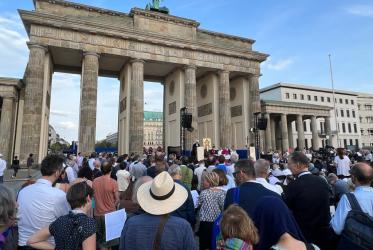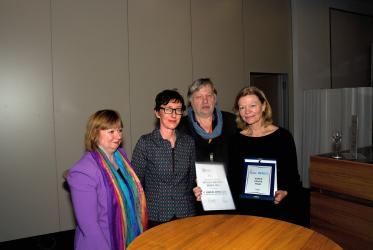Displaying 1 - 20 of 25
"A world free from nuclear weapons is possible"
11 September 2023
The cry of the Papuans in Indonesia
14 November 2019
WCC pays tribute to ecumenist pioneer
08 May 2019
Church in Bali empowers youth to break cycle of poverty
18 March 2019
#WCC70: Nathan Söderblom, ecumenical pioneer
29 August 2018
Broken glass of hope grown out of rubble
16 July 2018
Unifying faiths in peace and harmony through dialogue
10 April 2018
Trying to do good for the world
18 December 2017












